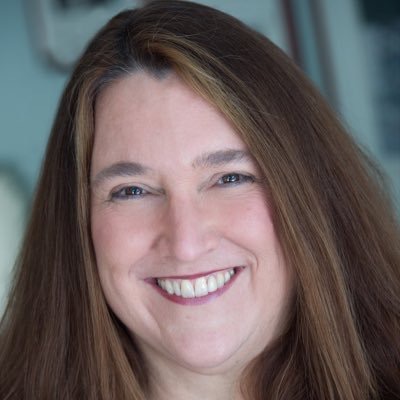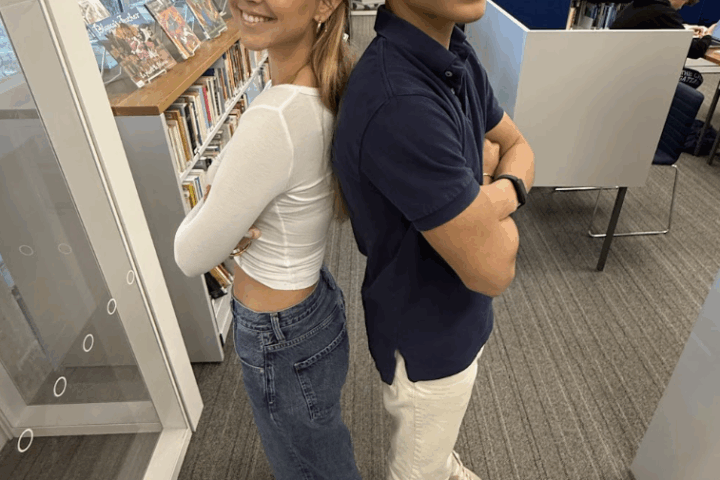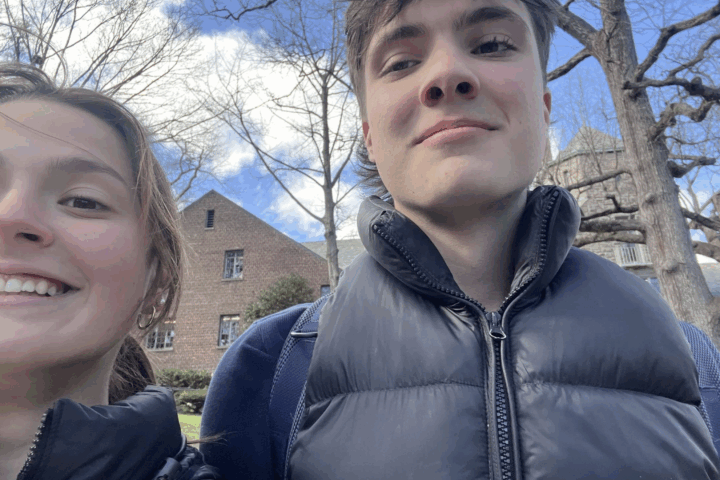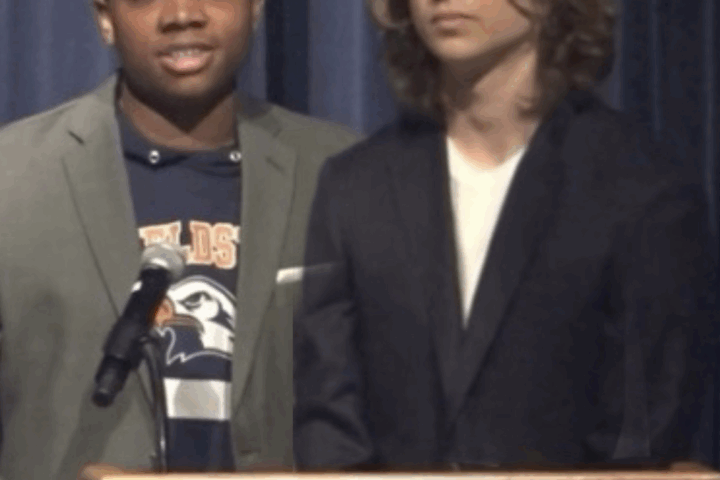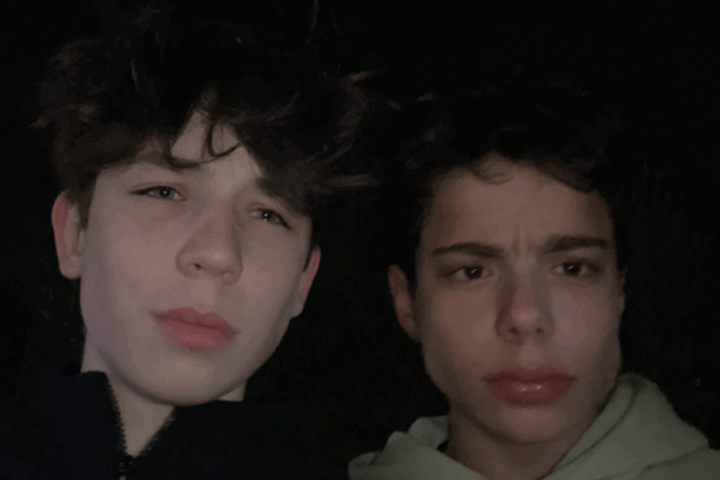Jessica Bagby is a teacher first and foremost, a fact made evident in even the most cursory of interactions. She chooses her words carefully, sometimes pausing thoughtfully for a few seconds at a time in order to consider how to best make a point. “I’ve always been a very relational person,” she said, “I’m an English teacher at heart, and connection is really what I thrive on.”
Now, after three years as Fieldston’s head of school, she worries about losing the bonds that made her love teaching in the first place. “I’ve had to focus so much on the business aspects of the school that in some ways I have not been as connected with the kids and the faculty as I would prefer. In a school this size with two campuses, I always feel as if there is not enough of me to go around, to be everywhere I want and need to be.”
In order to combat what feels to some like a divide between administration and students, “a huge goal this year is scheduling,” said Bagby, “I’ll be actually protecting time in my schedule for students and faculty. I began to do that a little bit more last year with parents, but we’re going to keep that up and I’m going to schedule time for kids this year.”
When we met in her spacious office overlooking the quad, she had just come from Fieldston Lower and spent the day before at Ethical Culture sitting in on classrooms. “I really am making it a priority to be with kids and teachers more,” she said, “I’m going to have lunches with kids. You’re going to be hearing about that soon.”
Going into this school year, she came up with a few central priorities to really focus on. Before taking any action, Bagby realized, the school’s central values needed to be defined. “What I’ve come to learn about that is that we don’t all agree about what progressive is, about really what ought to be our Ethics program.” She said, “In some ways, we’ve had ethics be a catch-all for health and wellness, Ethics and some of our Diversity Equity and Inclusion (DEI) work, and I’ll grant you health and wellness and DEI work, they are ethical issues, but they are not an Ethics program in and of themselves. Similarly, they need their own distinct pieces of curricular landscape.”
Self-reflection looks to be a central theme in Bagby’s vision for the school–after all, how can we get better if we’re unsure of what it is we’re striving for? “I was thinking about being progressive here, and when I think about progressive I can think about it in terms of politics and the socio-political world that we live in, or I can think about it in terms of pedagogy because there are some actual schools of thought around progressive pedagogy. Often schools that adopt progressive pedagogy also have progressive politics…but right now it’s about trying to get our arms around just exactly what it means for this school to say it’s progressive. Those things, the cornerstones of our school–progressive and ethical–are super important to continue to talk about and examine.”
In an attempt to clarify the meaning of progressive education, posters will be put up around school illustrating its core tenets, “so that kids know what we’re talking about and so we know what we’re talking about.” In addition, a task force of faculty and administrators has been assembled in order to examine the professional evaluation process and root it more concretely in progressive educational practices.
Change in the classroom also involves some intense introspection. “Looking at what it is we actually teach, what we want kids to know, what are our essential questions? Some of them coincided in some ways with the concerns articulated by the student protest last year, many of them were our concerns before the student protest articulated them, but we’re really looking at the foundational courses from sixth through tenth grade, because we don’t really think the electives should carry all that weight. We need to make sure that these courses are excellent and reflect a variety of perspectives and the body of work across cultures.”
Another key priority is financial stewardship and sustainability, in large part because Bagby considers it important that Fieldston be “a national exemplar of access for people who might not otherwise be able to afford an education with this sort of price tag, which has gotten more expensive as the income gap has widened in this country. The fact that we give the most financial aid in the City of New York for tuition is really important.”
Being able to manage funds–which come in both from donations and tuition fees–is especially difficult at a school like Fieldston, which requires quite a bit of upkeep on both an annual and a day-to-day basis. To prudently and productively wield Fieldston’s annual operating budget of just under $90 million is no easy task: “We have to take care of our facilities: we have these two beautiful campuses that are aging, but they cost a lot more to repair and maintain the longer you defer maintenance, and that cost will far outstrip anything we can make in investments on financial aid endowment.”
As students, we sometimes forget that our school does not clean and repair itself by magic: it requires a huge commitment of time, effort, and money to keep it running on even the most basic level. “We have all these projects, we have a robust financial aid budget, but we have to make sure we can sustain that, so we have to raise philanthropic dollars for that.”
Making the school a better place is always the most important thing in mind when distributing funding. “My first big project here was the Tate Library, which was both a wonderful renovation and facilities enhancement, and we also took care of significant deferred maintenance at the same time. We proved we could be good stewards; the project came in four months ahead of schedule and three million dollars under budget. To get the Design Studios and Student Commons done this summer was another win for our students and educational program; these projects are obviously major enhancements to our school. And, of course, little by little, we’re air-conditioning the place.”
On an administrative level, Bagby has faced quite a few challenges: “I’ve had to hire some key administrative positions, and I’ve had to hire a lot of them. In the time that I’ve been here, I’ve hired three principals, I’ve hired a CFO, a COO, almost every position on the administrative council.” Forming a group that can productively and empathetically deal with the school’s issues is an essential factor in its success.
Even though these administrative concerns can feel far removed from the issues affecting students and faculty directly, they often touch us more profoundly than we realize. “This year in particular, because we’re hiring folks, there are some systems and processes in finance and admissions and all these areas that people don’t see in classrooms that have taken up a lot of my time. Trying to make sure that team is collaborative and a good team and works well and is in touch with the community and faculty and students, supports each other, is really, really important.”
Above all other issues, however, in Bagby’s eyes student wellness is “probably the most important priority, because if you’re not well, none of the rest matters.” She laughed wryly, “I often say that we hatch eagles from eagles’ eggs–I’ve said that my whole career, in all the schools I’ve been at, and it works out nicely now that we’re actually the eagles.”
“I see kids with pressures now that have just become intensified over the course of my 35 years in this work,” she continued, “ it’s gotten really hard to navigate, to try to find meaning as a student here and now and not be too worried about the future. We just need to try to keep our kids well, the rest of it will work itself out. We’re going to be leaning into what our DEI and health and wellness plans are going to be over the next three-to-five years, we’ve stacked up in those areas during my tenure.”
A large part of improving student wellness involves nurturing a “culture of care and accountability where we have civility and respect for ideas and one another. In some of our best instincts to do the right thing, we can be very judgmental and not make a room for a variety of perspectives and thoughts…”
Diversity of thought, she acknowledges, can be a bit lacking at Fieldston. “Sometimes this place can feel, for all its valuing of diversity, pretty homogeneous in the kind of thought that it thinks is copacetic. It can feel a little bit dogmatic here. I hope when we have differences, the way we interact with each other can be more open-minded and open-hearted.”
“I was devastated last year by a lot of the stories I heard from kids, parents, and faculty and staff about their experiences and how punitive and unforgiving the culture can be––and I’m talking about folks from different backgrounds and perspectives.” Her voice cracked slightly at this.
“I’ve learned a lot about kids’ experiences over time here, things that I wouldn’t have otherwise known. It really drove home how much more connected I needed and wanted to be.”
In the corner of Bagby’s office, there is a folk painting which features a Flannery O’Connor quote in bold type: “‘I can, with one eye squinted, take it all as a blessing.’”
“I love that painting,” Bagby said. “and I think that quote may sum it up. I have faced my fair share of challenges here, but on the whole, with one eye squinted I can take it all as a blessing.”

